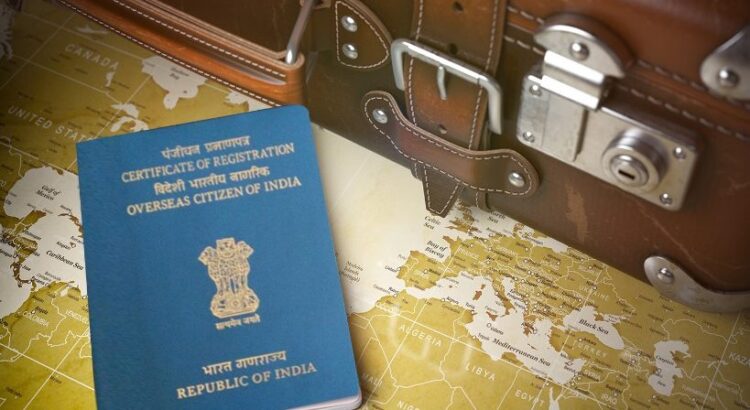Also called the Overseas Citizenship of India, the OCI system facilitates a visa-free trip to India. This trip can be concerned with the right of residency, business meeting/ conference and educational activities here. The spouse of an OCI card holder is eligible to apply for this card.
These people have very restricted rights, as they do not have the right to vote. Nor can they buy any agricultural land. Like NRIs, they can claim for inheriting ancestral property in this country.
Apply With Union Home Ministry
The Union Home Ministry has the Bureau of Immigration to look into the application procedure of the overseas citizenship cards. People from any country, except for Pakistan, Bangladesh, Nepal, Sri Lanka, Bhutan and Afghanistan, can get it.
Who can apply?
- Children
- Children, grand-children or great grand-children of people who were once the native of India at the time when the Indian constitution was convened on 26th January 1950.
- At least one of the parents is an Indian citizen.
- Foreigners
- Who was a citizen of India at the time when the Indian constitution was formed (26 Jan, 1950)
- Who had Indian citizenship when the constitution of India was set up
- Who was a citizen of this country after 15th Aug, 1947
- Spouses
- Wife/husband of a OCI/PIO cardholder or Indian citizen, given that the wedding is legally registered and continued for at least 2 continuous years before application
What are the documents required for OCI?
- Proof of the present citizenship
- Proof of self or parents or grandparents or great grandparents being a citizen of India
- Proof of relationship as parent/grandparent/ great grandparent, if their Indian origin is the basis of your registration
- Proof of being a foreign spouse of a citizen of India or spouse of foreign origin of an OCI cardholder
- Passport size photograph of the applicant
- Thumb impression of the applicant
How can you apply for it in India?
The central government has made this procedure way easier, wherein you don’t need to become a victim of corrupted officers. The applicant can apply it online and then, fix an appointment for the verification of documents in-person.
The Form XIX is available in Part A and Part B for the application, which can be filled and submitted online. However, the hardcopies of the same Part A and Part B forms must be manually submitted to the Indian Mission/ Post/ Office together with all the other requested documents.
- The applicant can get himself/ herself registered with https://passport.gov.in/oci.
- Later, fill up the requisite information & credentials in the digital OCI form.
- Upload the requisite documents, as aforementioned.
How long does it take to get?
It may take a month for completing the whole process. This is the case when your application does not have any discrepancies. But if there is any, the procedure can be stretched to the maximum 120 days.
How much fee do you pay?
An application fee of $275 or equivalent amount is what you need to pay for this service. You can submit the duly filled form and fee challan with the Foreigners Regional Registration Offices or at Indian Missions abroad.
Reason of Denial & Cancellation
Upon verification, the Ministry of Home Affairs can reject your application if it finds lack of adequate security clearance, or the candidate is found blacklisted for being a guilty of any fraud or misguiding. Besides, those who is found disrespecting the Indian Constitution can meet rejection of their application.
Cancellation On the Ground Of Dual Citizenship
India does not allow any foreigner to have dual citizenship. If this card’s applicant is already registered as the overseas citizen five years ago, he can get it.
There is a condition to get this status. i.e. the applicant should have been a resident of India for 12 months before applying for this privilege.
Conversion of PIOs into OCIs
Before 2011, the External Affairs Ministry used to issue the Person of Indian Origin (PIO) cards. These are the Indian-origin people who se four generations have been not here in India, except for the people in Pakistan, Bangladesh, Nepal, Sri Lanka, Bhutan & Afghanistan.
In 2015, the PM Narendra Modi’s cabinet amended the Citizenship Act 2015, announcing these changes:
- Existing PIO card holders will automatically be considered as OCI cardholders. They may request to have a separate, dedicated OCI card if required.
- Those who have an approved PIO card application will automatically be migrated to the OCI system while marking the former card application as the OCI application form.
- Those applicants whose PIO application is not yet approved must reapply with a fresh OCI application form.











